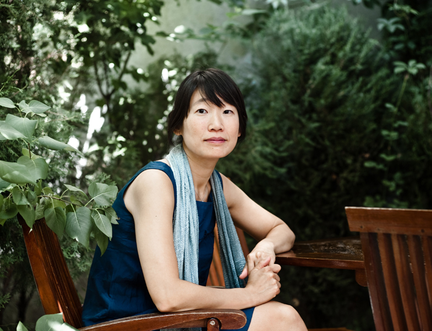More articles Thursday 25 August 2016 9:00pm
Tracking Family Histories In Totalitarian Regimes

Things disappear under authoritarian governments – people; texts; buildings; memories. Peter Krištúfek and Madeleine Thien have written novels that explore the changing and changeable stories their respective countries of familial origin – Slovakia and China – tell about themselves.
Thien, the daughter of Malaysian-Chinese immigrants to Vancouver, said that the trigger for her Booker-longlisted novel Do Not Say We Have Nothing was sparked by her memories of watching footage of the Tiananmen Square pro-democracy protests of 1989. Fourteen years old at the time, she was struck by “everything that we could see unfolding versus everything that we couldn’t see. That friction stayed with me.” Her story developed to include Chinese musicians who found “an abstract language” in Western classical music during the tumult of the Cultural Revolution, even as the regime attempted to cleanse the culture of the “spiritual pollution” of classical forms. The refusal of speech or of sound became part of her narrative too. “The silence about certain events – the catastrophe of the Cultural Revolution; the effort to forget Tiananmen Square – becomes its own kind of language.”
Music is also a vital element in Krištúfek’s book, The House of the Deaf Man. “In Communist Czechoslovakia, there was always a difference between the music in your head and the music you wanted to listen to - usually rock music – so you were always in two different worlds. You always had to pretend that you were listening only to official music. People would often be thrown in jail for listening to unsuitable music. But whether we like it or not, there is always some kind of music in our heads.” His novel explores Slovak history from the 1930s through to the 1990s, and began, he says, as “an unsuccessful attempt at family history.” He began with the idea his own grandparents’ life span had encompassed four very different political regimes in Slovakia. “I wanted to examine how I would react in the situation of many changing regimes.” His family story, however, “didn’t succeed the minute I started making things up. It became contaminated by other people’s stories.” Such confusion of fact with fiction is appropriate, since under certain political systems, remembering is itself politicised. “I find memory a very painful and urgent subject,” Krištúfek said. “The new regime will always try to make people forget what went before.”
In both books, the distortion of memory takes the literal form of the destruction of architecture and the alteration of the landscape. To Krištúfek, “A house is like a human body, and the most important part of the house is the attic and the basement – that’s where we keep our secrets. But in Slovakia we demolish buildings, because we want to forget the past. And often these houses contain very strong stories. This is why I feel very good in a place like Edinburgh, where the houses seem eternal.”
In China, said Thien, cities and streets are named after timeless natural features, while the policies of the government all insist on modernity and change. “Place names all relate to things which are no longer there, which is against the will of this progressive, future imagination of China.”
Asked whether her book would see publication in China, she shook her head. “There’s no way it could be published in China. The Cultural Revolution is still too sensitive – and Tiananmen Square is just a no-go area.” She mentioned the disappearance of Chinese booksellers, and the recent arrests of people who were paying private tribute to Tiananmen Square in their house. “We’re in uncertain times.”
- 2025 Festival:
- 9-24 August
Latest News
 Communities Programme participants celebrate success of 2024
Communities Programme participants celebrate success of 2024



